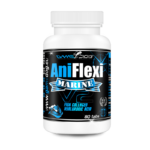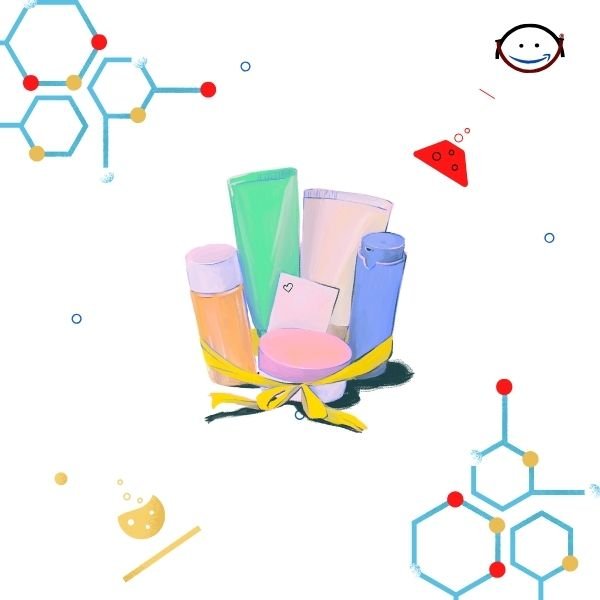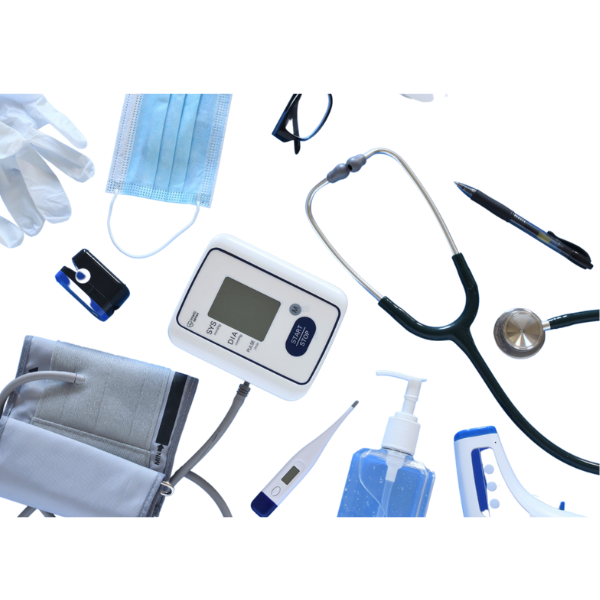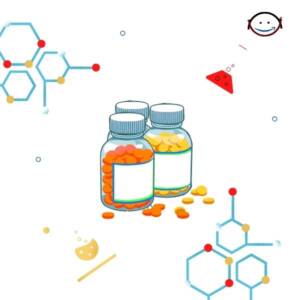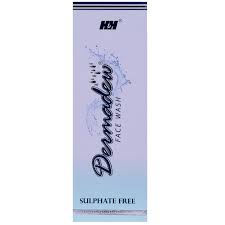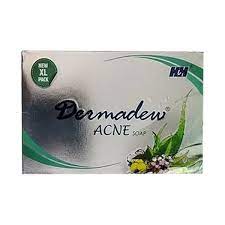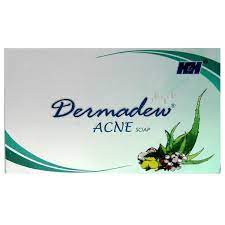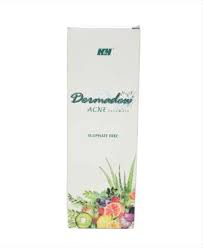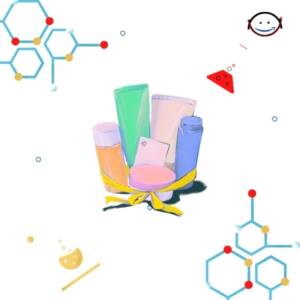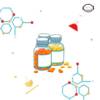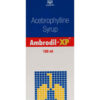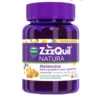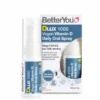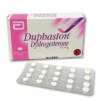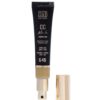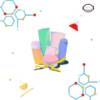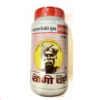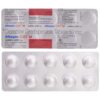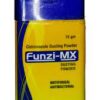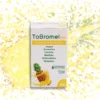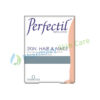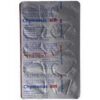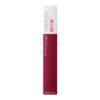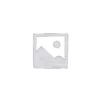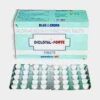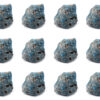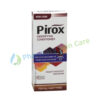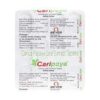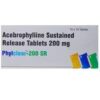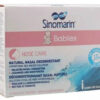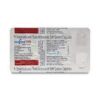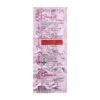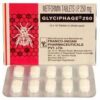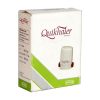-
Joingain Caps X30 ₦3,350.00 QTY: 1
-
Snack Cocco Enervit Protein 8x27g ₦17,556.00 QTY: 3
-
AMBRODIL XP 100ML SUSP ₦2,438.00 QTY: 1
-
Perrigo Paracetamol 500mg Film Coated Tablets 24 Pack ₦4,200.00 QTY: 3
-
PIN OM H 40MG TABLET 15?S ₦7,868.50 QTY: 1
-
ZZZQUIL NATURA MANGO & BAN30PAST ₦19,722.00 QTY: 1
-
SALACTIN PAINT 10ML ₦8,683.25 QTY: 1
-
BETTERYOU DLUX 1000IU, VEGAN VITAMIN D DAILY ORAL SPRAY 15ML ₦25,236.00 QTY: 1
-
CABZORED 60 Tablet 30?s ₦678,300.00 QTY: 1
-
CoeNAC Ab Tablet 10?s ₦37,400.00 QTY: 1
-
Duphaston Dydrogesterone 10mg Tablet ₦5,800.00 QTY: 1
-
SOSU By Suzanne Jackson Dripping Gold CC Me In Foundation SPF45 ₦18,197.93 QTY: 1
-
Nature?s measures Measures 3mg by 30 ₦100.00 QTY: 1
-
YOGI CHURNA (35g) ₦760.00 QTY: 1
-
REGAPHYLLINE Injection 2ml ₦23,800.00 QTY: 1
-
Barole 20 caps ₦3,445.00 QTY: 1
-
RYNO NASAL SPRAY 100MD 10GM ₦7,610.75 QTY: 2
-
MATNIB 100mg Tablet 10?s ₦73,100.00 QTY: 1
-
ALKEPIN ODT 50MG TAB 10`S ₦1,230.00 QTY: 1
-
2 B12 CAP 15`S ₦5,921.50 QTY: 1
-
FUNZI MX 1% BOTTLE OF 75GM DUSTING POWDER ₦2,836.00 QTY: 1
-
AZITHRAL 200MG SYP 15ML ₦1,146.75 QTY: 1
-
TOBROMEL 400 60CPR ₦36,442.00 QTY: 1
-
PREGATHREE TABLET 10?S ₦4,372.50 QTY: 1
-
Perfectil Cap ₦1,235.00 QTY: 1
-
CHYMONAC MR TAB 10`S ₦4,070.50 QTY: 1
-
Maybelline Super Stay Matte Ink Liquid Lipstick 115 Founder 5 mL ₦31,720.00 QTY: 1
-
Asaq 6-13yrs ₦1,560.00 QTY: 1
-
DICLOTAL FORTE 50/325MG STRIP OF 10 TABLETS ₦783.75 QTY: 1
-
Pirox Conditioner 150ml ₦1,795.00 QTY: 1
-
CARIPAYA TAB 10`S ₦9,673.25 QTY: 1
-
PHYLCLEAR SR 200MG TABLET 10?S ₦3,485.75 QTY: 1
-
Sinomarin Babies Monodose 5 ml 18's ₦35.00 QTY: 1
-
CONTIFLO D CAP 10`S ₦6,427.25 QTY: 1
-
ETOFINE MR CAPSULE ₦5,649.25 QTY: 1
-
DILNIP 20MG STRIP OF 10 TABLETS ₦5,361.50 QTY: 1
-
GLYCIPHAGE 250MG STRIP OF 10 TABLETS ₦280.50 QTY: 1
-
Quikhaler Dpi Device 1?s ₦40,800.00 QTY: 1
Customer matched zone "Lagos Delivery Options"
Sort by:
44593–44608 of 173249 Results
-
Dermacool 0.5% Menthol In Aqueous Cream, 100gDermacool 0.5% Menthol In Aqueous Cream cools, calms and provides instant relief from a variety of skin conditions like dermatitis, eczema, insect bites, prickly heat, sunburn and hives. It is specially formulated for those with irritated skin and differs from other aqueous creams by remaining free of Sodium Lauryl Sulfate (SLS), a known skin irritant.The menthol within Dermacool triggers the cold receptors in the skin in order to provide a cooling and soothing relief. It also works to restore natural moisture levels in the skin to prevent it from becoming dehydrated and dry.Medical treatments, certain prescribed drugs and the sun can take their toll on your skin and can cause discomfort. This product helps to relief such discomfort by gently cooling and soothing the skin.Dermacool Aqueous Cream can be used for the relief of:Itchy skin conditions Mild SunburnPrickly HeatSoothes urticaria, a reaction to insect bites which results in irritation, swelling and or itchingRestless legs – especially after exerciseMuscular aches and pains.Dermacool Aqueous Cream can be used by:For children 2 – 12 years.Suitable for adults with fragile skin.Use on itchy, irritated and heated skin.0.5% Menthol in a rich Aqueous cream.Sodium lauryl sulphate free.What is Itchy Skin?Itchy skin is not usually a sign of anything serious. You can often treat it yourself and it will usually go away after a few weeks.Sometimes itching is caused by dry, cracked or irritated skin. There are simple things you can do to help ease the itching.These things may also help stop itchy skin returning and avoid skin damage from scratching.DOpat or tap your skin instead of scratching ithold something cool on your skin, like a damp towelhave cool or warm baths or showersuse an unperfumed moisturiser or emollient regularlykeep your nails clean, short and smoothwear loose cotton clothinguse a laundry liquid or powder that’s for sensitive skinDON’Tdo not wear tight clothes, or clothes made from wool or synthetic fabricsdo not spend a long time in the bath or showerdo not use perfumed soaps, deodorants or moisturisersItchy skin has many possible causes. If you have other symptoms (such as a rash or swelling) this might help to find the cause.Itchy skin is also common during pregnancy or after the menopause. This is caused by hormonal changes and usually gets better over time.Dermacool 0.5% Menthol In Aqueous Cream ReviewsAfter using Dermacool 0.5% Menthol In Aqueous Cream, it’s helpful to let others know about your experience. Reviews of an item help other users know that medicines received have helped the condition it is claimed for, how well the treatment worked or any issues to be aware of. We invite our users to leave a review of both their treatment and of the service provided. Click on the reviews tab to see if there has been feedback on this item.Price of Dermacool Child Menthol In Aqueous Cream in UKBuy Dermacool 0.5% Menthol In Aqueous Cream at Dock Pharmacy Essex UK, UK Online Pharmacy.Sku: 3579935
Dermacool 0.5% Menthol In Aqueous Cream, 100g
₦100.00 -
Dermacool 0.5% Menthol In Aqueous Cream, 500gDermacool 0.5% Menthol In Aqueous Cream cools, calms and provides instant relief from a variety of skin conditions like dermatitis, eczema, insect bites, prickly heat, sunburn and hives. It is specially formulated for those with irritated skin and differs from other aqueous creams by remaining free of Sodium Lauryl Sulfate (SLS), a known skin irritant.The menthol within Dermacool triggers the cold receptors in the skin in order to provide a cooling and soothing relief. It also works to restore natural moisture levels in the skin to prevent it from becoming dehydrated and dry.Medical treatments, certain prescribed drugs and the sun can take their toll on your skin and can cause discomfort. This product helps to relief such discomfort by gently cooling and soothing the skin.Dermacool Aqueous Cream can be used for the relief of:Itchy skin conditions Mild SunburnPrickly HeatSoothes urticaria, a reaction to insect bites which results in irritation, swelling and or itchingRestless legs – especially after exerciseMuscular aches and pains.Dermacool Aqueous Cream can be used by:For children 2 – 12 years.Suitable for adults with fragile skin.Use on itchy, irritated and heated skin.0.5% Menthol in a rich Aqueous cream.Sodium lauryl sulphate free.What is Itchy Skin?Itchy skin is not usually a sign of anything serious. You can often treat it yourself and it will usually go away after a few weeks.Sometimes itching is caused by dry, cracked or irritated skin. There are simple things you can do to help ease the itching.These things may also help stop itchy skin returning and avoid skin damage from scratching.DOpat or tap your skin instead of scratching ithold something cool on your skin, like a damp towelhave cool or warm baths or showersuse an unperfumed moisturiser or emollient regularlykeep your nails clean, short and smoothwear loose cotton clothinguse a laundry liquid or powder that’s for sensitive skinDON’Tdo not wear tight clothes, or clothes made from wool or synthetic fabricsdo not spend a long time in the bath or showerdo not use perfumed soaps, deodorants or moisturisersItchy skin has many possible causes. If you have other symptoms (such as a rash or swelling) this might help to find the cause.Itchy skin is also common during pregnancy or after the menopause. This is caused by hormonal changes and usually gets better over time.Dermacool 0.5% Menthol In Aqueous Cream ReviewsAfter using Dermacool 0.5% Menthol In Aqueous Cream, it’s helpful to let others know about your experience. Reviews of an item help other users know that medicines received have helped the condition it is claimed for, how well the treatment worked or any issues to be aware of. We invite our users to leave a review of both their treatment and of the service provided. Click on the reviews tab to see if there has been feedback on this item.Price of Dermacool 0.5% Menthol In Aqueous Cream in UKBuy Dermacool 0.5% Menthol In Aqueous Cream at Dock Pharmacy Essex UK, UK Online Pharmacy.Sku: 3812336
Dermacool 0.5% Menthol In Aqueous Cream, 500g
₦100.00 -
Dermacool 1% Menthol Aqueous Cream, 100gDermacool 1% Menthol Aqueous Cream is a skin treatment that works to provide relief for a number of skin conditions, such as eczema and psoriasis. It can also be used for prickly heat and sunburn. The cream contains menthol which helps to cool and soothe the skin. It also restores the moisture that has been lost in the skin.Unlike other skin creams, this does not contain Sodium Lauryl Sulfate (SLS), which is known to cause skin irritation.Dermacool Menthol Aqueous Cream 1% 500g cools, calms and provides instant relief from a variety of skin conditions like dermatitis, eczema, insect bites, prickly heat, sunburn and hives. It is specially formulated for those with irritated skin and differs from other aqueous creams by remaining free of Sodium Lauryl Sulfate (SLS), a known skin irritant.The menthol within Dermacool triggers the cold receptors in the skin in order to provide a cooling and soothing relief. It also works to restore natural moisture levels in the skin to prevent it from becoming dehydrated and dry.What is Itchy Skin?Itchy skin is not usually a sign of anything serious. You can often treat it yourself and it will usually go away after a few weeks.Sometimes the itching is caused by dry skin cracked or irritated skin and Eczema and Psoriasis There are simple things you can do to help ease the itching.These things may also help stop itchy skin returning and avoid skin damage from scratching.DOpat or tap your skin instead of scratching ithold something cool on your skin, like a damp towelhave cool or warm baths or showersuse an unperfumed moisturiser or emollient regularlykeep your nails clean, short and smoothwear loose cotton clothinguse a laundry liquid or powder that’s for sensitive skinDON’Tdo not wear tight clothes, or clothes made from wool or synthetic fabricsdo not spend a long time in the bath or showerdo not use perfumed soaps, deodorants or moisturisersItchy skin has many possible causes. If you have other symptoms (such as a rash or swelling) this might help to find the cause.What Causes Dry Skin?Dry skin isn’t usually serious. In most cases it’s caused by factors like hot or cold weather, low moisture in the air, and soaking in hot water.You can do a lot on your own to improve your skin, including using moisturizers and avoiding harsh, drying soaps. But sometimes dry skin happens often or is severe. In these cases, you may need help from a doctor who specializes in skin (dermatologist)CausesDry skin (xerosis) often has an environmental cause. Certain diseases also can significantly affect your skin. Potential causes of dry skin include:Weather. Skin tends to be driest in winter, when temperatures and humidity levels plummet. But the season may not matter as much if you live in desert regions.Heat. Central heating, wood-burning stoves, space heaters and fireplaces all reduce humidity and dry your skin.Hot baths and showers. Taking long, hot showers or baths can dry your skin. So can frequent swimming, particularly in heavily chlorinated pools.Harsh soaps and detergents. Many popular soaps, detergents and shampoos strip moisture from your skin as they are formulated to remove oil.Other skin conditions. People with skin conditions such as atopic dermatitis (eczema) or psoriasis are prone to dry skin.Risk factorsAnyone can develop dry skin. But you may be more likely to develop the condition if you:Are in your 40s or older. The risk increases with age — more than 50 percent of older adults have dry skin.Live in dry, cold or low-humidity climates.Have a job that requires you to immerse your skin in water, such as nursing and hairstyling.Swim frequently in chlorinated pools.ComplicationsDry skin is usually harmless. But when it’s not cared for, dry skin may lead to:Atopic dermatitis (eczema). If you’re prone to develop this condition, excessive dryness can lead to activation of the disease, causing redness, cracking and inflammation.Infections. Dry skin may crack, allowing bacteria to enter, causing infections.These complications are most likely to occur when your skin’s normal protective mechanisms are severely compromised. For example, severely dry skin can cause deep cracks or fissures, which can open and bleed, providing an avenue for invading bacteriaSymptomsDry skin is often temporary — you get it only in winter, for example — but it may be a lifelong condition. Signs and symptoms of dry skin depend on your age, your health, where you live, time spent outdoors and the cause of the problem. Dry skin is likely to cause one or more of the following:A feeling of skin tightness, especially after showering, bathing or swimmingSkin that feels and looks roughItching (pruritus)Slight to severe flaking, scaling or peelingFine lines or cracksGray, ashy skinRednessDeep cracks that may bleedWhat is Eczema?Atopic eczema (atopic dermatitis) is the most common form of eczema, a condition that causes the skin to become itchy, dry and cracked.Atopic eczema is more common in children, often developing before their first birthday. But it may also develop for the first time in adults.It’s usually a long-term (chronic) condition, although it can improve significantly, or even clear completely, in some children as they get older.Atopic eczema causes the skin to become itchy, dry, cracked and sore.Some people only have small patches of dry skin, but others may experience widespread inflamed skin all over the body.Inflamed skin can become red on lighter skin, and darker brown, purple or grey on darker skin. This can also be more difficult to see on darker skin.Although atopic eczema can affect any part of the body, it most often affects the hands, insides of the elbows, backs of the knees and the face and scalp in children.People with atopic eczema usually have periods when symptoms are less noticeable, as well as periods when symptoms become more severe (flare-ups).Eczema is the name for a group of skin conditions that cause dry, irritated skin.Other types of eczema include:discoid eczema – a type of eczema that occurs in circular or oval patches on the skincontact dermatitis – a type of eczema that occurs when the body comes into contact with a particular substancevaricose eczema – a type of eczema that most often affects the lower legs and is caused by problems with the flow of blood through the leg veinsseborrhoeic eczema – a type of eczema where red, scaly patches develop on the sides of the nose, eyebrows, ears and scalpdyshidrotic eczema (pompholyx) – a type of eczema that causes tiny blisters to erupt across the palms of the handsDermacool 1% Menthol Aqueous Cream ReviewsAfter using Dermacool 1% Menthol Aqueous Cream, it’s helpful to let others know about your experience. Reviews of an item help other users know that medicines received have helped the condition it is claimed for, how well the treatment worked or any issues to be aware of. We invite our users to leave a review of both their treatment and of the service provided. Click on the reviews tab to see if there has been feedback on this item.Price of Dermacool 1% Menthol Aqueous Cream in UKBuy Dermacool 1% Menthol Aqueous Cream at Dock Pharmacy Essex UK, UK Online Pharmacy.Sku: 3370392
Dermacool 1% Menthol Aqueous Cream, 100g
₦100.00 -
Dermacool 1% Menthol Aqueous Cream, 500gDermacool 1% Menthol Aqueous Cream is a skin treatment that works to provide relief for a number of skin conditions, such as eczema and psoriasis. It can also be used for prickly heat and sunburn. The cream contains menthol which helps to cool and soothe the skin. It also restores the moisture that has been lost in the skin.Unlike other skin creams, this does not contain Sodium Lauryl Sulfate (SLS), which is known to cause skin irritation.Dermacool Menthol Aqueous Cream 1% 500g cools, calms and provides instant relief from a variety of skin conditions like dermatitis, eczema, insect bites, prickly heat, sunburn and hives. It is specially formulated for those with irritated skin and differs from other aqueous creams by remaining free of Sodium Lauryl Sulfate (SLS), a known skin irritant.The menthol within Dermacool triggers the cold receptors in the skin in order to provide a cooling and soothing relief. It also works to restore natural moisture levels in the skin to prevent it from becoming dehydrated and dry.What is Itchy Skin?Itchy skin is not usually a sign of anything serious. You can often treat it yourself and it will usually go away after a few weeks.Sometimes the itching is caused by dry skin cracked or irritated skin and Eczema and Psoriasis There are simple things you can do to help ease the itching.These things may also help stop itchy skin returning and avoid skin damage from scratching.DOpat or tap your skin instead of scratching ithold something cool on your skin, like a damp towelhave cool or warm baths or showersuse an unperfumed moisturiser or emollient regularlykeep your nails clean, short and smoothwear loose cotton clothinguse a laundry liquid or powder that’s for sensitive skinDON’Tdo not wear tight clothes, or clothes made from wool or synthetic fabricsdo not spend a long time in the bath or showerdo not use perfumed soaps, deodorants or moisturisersItchy skin has many possible causes. If you have other symptoms (such as a rash or swelling) this might help to find the cause.What Causes Dry Skin?Dry skin isn’t usually serious. In most cases it’s caused by factors like hot or cold weather, low moisture in the air, and soaking in hot water.You can do a lot on your own to improve your skin, including using moisturizers and avoiding harsh, drying soaps. But sometimes dry skin happens often or is severe. In these cases, you may need help from a doctor who specializes in skin (dermatologist)CausesDry skin (xerosis) often has an environmental cause. Certain diseases also can significantly affect your skin. Potential causes of dry skin include:Weather. Skin tends to be driest in winter, when temperatures and humidity levels plummet. But the season may not matter as much if you live in desert regions.Heat. Central heating, wood-burning stoves, space heaters and fireplaces all reduce humidity and dry your skin.Hot baths and showers. Taking long, hot showers or baths can dry your skin. So can frequent swimming, particularly in heavily chlorinated pools.Harsh soaps and detergents. Many popular soaps, detergents and shampoos strip moisture from your skin as they are formulated to remove oil.Other skin conditions. People with skin conditions such as atopic dermatitis (eczema) or psoriasis are prone to dry skin.Risk factorsAnyone can develop dry skin. But you may be more likely to develop the condition if you:Are in your 40s or older. The risk increases with age — more than 50 percent of older adults have dry skin.Live in dry, cold or low-humidity climates.Have a job that requires you to immerse your skin in water, such as nursing and hairstyling.Swim frequently in chlorinated pools.ComplicationsDry skin is usually harmless. But when it’s not cared for, dry skin may lead to:Atopic dermatitis (eczema). If you’re prone to develop this condition, excessive dryness can lead to activation of the disease, causing redness, cracking and inflammation.Infections. Dry skin may crack, allowing bacteria to enter, causing infections.These complications are most likely to occur when your skin’s normal protective mechanisms are severely compromised. For example, severely dry skin can cause deep cracks or fissures, which can open and bleed, providing an avenue for invading bacteriaSymptomsDry skin is often temporary — you get it only in winter, for example — but it may be a lifelong condition. Signs and symptoms of dry skin depend on your age, your health, where you live, time spent outdoors and the cause of the problem. Dry skin is likely to cause one or more of the following:A feeling of skin tightness, especially after showering, bathing or swimmingSkin that feels and looks roughItching (pruritus)Slight to severe flaking, scaling or peelingFine lines or cracksGray, ashy skinRednessDeep cracks that may bleedWhat is Eczema?Atopic eczema (atopic dermatitis) is the most common form of eczema, a condition that causes the skin to become itchy, dry and cracked.Atopic eczema is more common in children, often developing before their first birthday. But it may also develop for the first time in adults.It’s usually a long-term (chronic) condition, although it can improve significantly, or even clear completely, in some children as they get older.Atopic eczema causes the skin to become itchy, dry, cracked and sore.Some people only have small patches of dry skin, but others may experience widespread inflamed skin all over the body.Inflamed skin can become red on lighter skin, and darker brown, purple or grey on darker skin. This can also be more difficult to see on darker skin.Although atopic eczema can affect any part of the body, it most often affects the hands, insides of the elbows, backs of the knees and the face and scalp in children.People with atopic eczema usually have periods when symptoms are less noticeable, as well as periods when symptoms become more severe (flare-ups).Eczema is the name for a group of skin conditions that cause dry, irritated skin.Other types of eczema include:discoid eczema – a type of eczema that occurs in circular or oval patches on the skincontact dermatitis – a type of eczema that occurs when the body comes into contact with a particular substancevaricose eczema – a type of eczema that most often affects the lower legs and is caused by problems with the flow of blood through the leg veinsseborrhoeic eczema – a type of eczema where red, scaly patches develop on the sides of the nose, eyebrows, ears and scalpdyshidrotic eczema (pompholyx) – a type of eczema that causes tiny blisters to erupt across the palms of the handsDermacool 1% Menthol Aqueous Cream ReviewsAfter using Dermacool 1% Menthol Aqueous Cream, it’s helpful to let others know about your experience. Reviews of an item help other users know that medicines received have helped the condition it is claimed for, how well the treatment worked or any issues to be aware of. We invite our users to leave a review of both their treatment and of the service provided. Click on the reviews tab to see if there has been feedback on this item.Price of Dermacool 1% Menthol Aqueous Cream in UKBuy Dermacool 1% Menthol Aqueous Cream at Dock Pharmacy Essex UK, UK Online Pharmacy.Sku: 3812344
Dermacool 1% Menthol Aqueous Cream, 500g
₦100.00 -
Dermacool 1% Menthol Aqueous Cream, 500g TubDermacool 1% Menthol Aqueous Cream is a skin treatment that works to provide relief for a number of skin conditions, such as eczema and psoriasis. It can also be used for prickly heat and sunburn. The cream contains menthol which helps to cool and soothe the skin. It also restores the moisture that has been lost in the skin.Unlike other skin creams, this does not contain Sodium Lauryl Sulfate (SLS), which is known to cause skin irritation.Dermacool Menthol Aqueous Cream 1% 500g cools, calms and provides instant relief from a variety of skin conditions like dermatitis, eczema, insect bites, prickly heat, sunburn and hives. It is specially formulated for those with irritated skin and differs from other aqueous creams by remaining free of Sodium Lauryl Sulfate (SLS), a known skin irritant.The menthol within Dermacool triggers the cold receptors in the skin in order to provide a cooling and soothing relief. It also works to restore natural moisture levels in the skin to prevent it from becoming dehydrated and dry.What is Itchy Skin?Itchy skin is not usually a sign of anything serious. You can often treat it yourself and it will usually go away after a few weeks.Sometimes the itching is caused by dry skin cracked or irritated skin and Eczema and Psoriasis There are simple things you can do to help ease the itching.These things may also help stop itchy skin returning and avoid skin damage from scratching.DOpat or tap your skin instead of scratching ithold something cool on your skin, like a damp towelhave cool or warm baths or showersuse an unperfumed moisturiser or emollient regularlykeep your nails clean, short and smoothwear loose cotton clothinguse a laundry liquid or powder that’s for sensitive skinDON’Tdo not wear tight clothes, or clothes made from wool or synthetic fabricsdo not spend a long time in the bath or showerdo not use perfumed soaps, deodorants or moisturisersItchy skin has many possible causes. If you have other symptoms (such as a rash or swelling) this might help to find the cause.What Causes Dry Skin?Dry skin isn’t usually serious. In most cases it’s caused by factors like hot or cold weather, low moisture in the air, and soaking in hot water.You can do a lot on your own to improve your skin, including using moisturizers and avoiding harsh, drying soaps. But sometimes dry skin happens often or is severe. In these cases, you may need help from a doctor who specializes in skin (dermatologist)CausesDry skin (xerosis) often has an environmental cause. Certain diseases also can significantly affect your skin. Potential causes of dry skin include:Weather. Skin tends to be driest in winter, when temperatures and humidity levels plummet. But the season may not matter as much if you live in desert regions.Heat. Central heating, wood-burning stoves, space heaters and fireplaces all reduce humidity and dry your skin.Hot baths and showers. Taking long, hot showers or baths can dry your skin. So can frequent swimming, particularly in heavily chlorinated pools.Harsh soaps and detergents. Many popular soaps, detergents and shampoos strip moisture from your skin as they are formulated to remove oil.Other skin conditions. People with skin conditions such as atopic dermatitis (eczema) or psoriasis are prone to dry skin.Risk factorsAnyone can develop dry skin. But you may be more likely to develop the condition if you:Are in your 40s or older. The risk increases with age — more than 50 percent of older adults have dry skin.Live in dry, cold or low-humidity climates.Have a job that requires you to immerse your skin in water, such as nursing and hairstyling.Swim frequently in chlorinated pools.ComplicationsDry skin is usually harmless. But when it’s not cared for, dry skin may lead to:Atopic dermatitis (eczema). If you’re prone to develop this condition, excessive dryness can lead to activation of the disease, causing redness, cracking and inflammation.Infections. Dry skin may crack, allowing bacteria to enter, causing infections.These complications are most likely to occur when your skin’s normal protective mechanisms are severely compromised. For example, severely dry skin can cause deep cracks or fissures, which can open and bleed, providing an avenue for invading bacteriaSymptomsDry skin is often temporary — you get it only in winter, for example — but it may be a lifelong condition. Signs and symptoms of dry skin depend on your age, your health, where you live, time spent outdoors and the cause of the problem. Dry skin is likely to cause one or more of the following:A feeling of skin tightness, especially after showering, bathing or swimmingSkin that feels and looks roughItching (pruritus)Slight to severe flaking, scaling or peelingFine lines or cracksGray, ashy skinRednessDeep cracks that may bleedWhat is Eczema?Atopic eczema (atopic dermatitis) is the most common form of eczema, a condition that causes the skin to become itchy, dry and cracked.Atopic eczema is more common in children, often developing before their first birthday. But it may also develop for the first time in adults.It’s usually a long-term (chronic) condition, although it can improve significantly, or even clear completely, in some children as they get older.Atopic eczema causes the skin to become itchy, dry, cracked and sore.Some people only have small patches of dry skin, but others may experience widespread inflamed skin all over the body.Inflamed skin can become red on lighter skin, and darker brown, purple or grey on darker skin. This can also be more difficult to see on darker skin.Although atopic eczema can affect any part of the body, it most often affects the hands, insides of the elbows, backs of the knees and the face and scalp in children.People with atopic eczema usually have periods when symptoms are less noticeable, as well as periods when symptoms become more severe (flare-ups).Eczema is the name for a group of skin conditions that cause dry, irritated skin.Other types of eczema include:discoid eczema – a type of eczema that occurs in circular or oval patches on the skincontact dermatitis – a type of eczema that occurs when the body comes into contact with a particular substancevaricose eczema – a type of eczema that most often affects the lower legs and is caused by problems with the flow of blood through the leg veinsseborrhoeic eczema – a type of eczema where red, scaly patches develop on the sides of the nose, eyebrows, ears and scalpdyshidrotic eczema (pompholyx) – a type of eczema that causes tiny blisters to erupt across the palms of the handsDermacool 1% Menthol Aqueous Cream ReviewsAfter using Dermacool 1% Menthol Aqueous Cream, it’s helpful to let others know about your experience. Reviews of an item help other users know that medicines received have helped the condition it is claimed for, how well the treatment worked or any issues to be aware of. We invite our users to leave a review of both their treatment and of the service provided. Click on the reviews tab to see if there has been feedback on this item.Price of Dermacool 1% Menthol Aqueous Cream in UKBuy Dermacool 1% Menthol Aqueous Cream at Dock Pharmacy Essex UK, UK Online Pharmacy.Sku: 3274529
Dermacool 1% Menthol Aqueous Cream, 500g Tub
₦100.00 -
Dermacool 5% Menthol Aqueous Cream, 500gDermacool 5% Menthol Aqueous Cream cools, calms and provides instant relief from a variety of skin conditions like dermatitis, eczema, insect bites, prickly heat, sunburn, and hives. It is specially formulated for those with irritated skin and differs from other aqueous creams by remaining free of Sodium Lauryl Sulfate (SLS), a known skin irritant.The menthol within Dermacool triggers the cold receptors in the skin in order to provide a cooling and soothing relief. It also works to restore natural moisture levels in the skin to prevent it from becoming dehydrated and dry.Benefits of Dermacool 5% Menthol Aqueous CreamContains 5% menthol for severely irritated skinIt gently calms skin without drying, for the instant, cooling reliefCan be used to relieve a variety of skin conditionsDermacool Forte Cream can be used for the relief of:Itchy skin conditionsMild SunburnPrickly HeatSoothes urticaria, a reaction to insect bites which results in irritation, swelling and or itchingRestless legs – especially after exerciseMuscular aches and pains.What is Itchy Skin?Itchy skin is not usually a sign of anything serious. You can often treat it yourself and it will usually go away after a few weeks.Sometimes the itching is caused by dry skin cracked or irritated skin and Eczema and Psoriasis There are simple things you can do to help ease the itching.These things may also help stop itchy skin returning and avoid skin damage from scratching.DOpat or tap your skin instead of scratching ithold something cool on your skin, like a damp towelhave cool or warm baths or showersuse an unperfumed moisturiser or emollient regularlykeep your nails clean, short and smoothwear loose cotton clothinguse a laundry liquid or powder that’s for sensitive skinDON’Tdo not wear tight clothes, or clothes made from wool or synthetic fabricsdo not spend a long time in the bath or showerdo not use perfumed soaps, deodorants or moisturisersItchy skin has many possible causes. If you have other symptoms (such as a rash or swelling) this might help to find the cause.What Causes Dry Skin?Dry skin isn’t usually serious. In most cases it’s caused by factors like hot or cold weather, low moisture in the air, and soaking in hot water.You can do a lot on your own to improve your skin, including using moisturizers and avoiding harsh, drying soaps. But sometimes dry skin happens often or is severe. In these cases, you may need help from a doctor who specializes in skin (dermatologist)CausesDry skin (xerosis) often has an environmental cause. Certain diseases also can significantly affect your skin. Potential causes of dry skin include:Weather. Skin tends to be driest in winter, when temperatures and humidity levels plummet. But the season may not matter as much if you live in desert regions.Heat. Central heating, wood-burning stoves, space heaters and fireplaces all reduce humidity and dry your skin.Hot baths and showers. Taking long, hot showers or baths can dry your skin. So can frequent swimming, particularly in heavily chlorinated pools.Harsh soaps and detergents. Many popular soaps, detergents and shampoos strip moisture from your skin as they are formulated to remove oil.Other skin conditions. People with skin conditions such as atopic dermatitis (eczema) or psoriasis are prone to dry skin.Risk factorsAnyone can develop dry skin. But you may be more likely to develop the condition if you:Are in your 40s or older. The risk increases with age — more than 50 percent of older adults have dry skin.Live in dry, cold or low-humidity climates.Have a job that requires you to immerse your skin in water, such as nursing and hairstyling.Swim frequently in chlorinated pools.ComplicationsDry skin is usually harmless. But when it’s not cared for, dry skin may lead to:Atopic dermatitis (eczema). If you’re prone to develop this condition, excessive dryness can lead to activation of the disease, causing redness, cracking and inflammation.Infections. Dry skin may crack, allowing bacteria to enter, causing infections.These complications are most likely to occur when your skin’s normal protective mechanisms are severely compromised. For example, severely dry skin can cause deep cracks or fissures, which can open and bleed, providing an avenue for invading bacteriaSymptomsDry skin is often temporary — you get it only in winter, for example — but it may be a lifelong condition. Signs and symptoms of dry skin depend on your age, your health, where you live, time spent outdoors and the cause of the problem. Dry skin is likely to cause one or more of the following:A feeling of skin tightness, especially after showering, bathing or swimmingSkin that feels and looks roughItching (pruritus)Slight to severe flaking, scaling or peelingFine lines or cracksGray, ashy skinRednessDeep cracks that may bleedWhat is Eczema?Atopic eczema (atopic dermatitis) is the most common form of eczema, a condition that causes the skin to become itchy, dry and cracked.Atopic eczema is more common in children, often developing before their first birthday. But it may also develop for the first time in adults.It’s usually a long-term (chronic) condition, although it can improve significantly, or even clear completely, in some children as they get older.Atopic eczema causes the skin to become itchy, dry, cracked and sore.Some people only have small patches of dry skin, but others may experience widespread inflamed skin all over the body.Inflamed skin can become red on lighter skin, and darker brown, purple or grey on darker skin. This can also be more difficult to see on darker skin.Although atopic eczema can affect any part of the body, it most often affects the hands, insides of the elbows, backs of the knees and the face and scalp in children.People with atopic eczema usually have periods when symptoms are less noticeable, as well as periods when symptoms become more severe (flare-ups).Eczema is the name for a group of skin conditions that cause dry, irritated skin.Other types of eczema include:discoid eczema – a type of eczema that occurs in circular or oval patches on the skincontact dermatitis – a type of eczema that occurs when the body comes into contact with a particular substancevaricose eczema – a type of eczema that most often affects the lower legs and is caused by problems with the flow of blood through the leg veinsseborrhoeic eczema – a type of eczema where red, scaly patches develop on the sides of the nose, eyebrows, ears and scalpdyshidrotic eczema (pompholyx) – a type of eczema that causes tiny blisters to erupt across the palms of the handsDermacool 5% Menthol Aqueous Cream ReviewsAfter using Dermacool Forte 5% Menthol Aqueous Cream, it’s helpful to let others know about your experience. Reviews of an item help other users know that medicines received have helped the condition it is claimed for, how well the treatment worked or any issues to be aware of. We invite our users to leave a review of both their treatment and of the service provided. Click on the reviews tab to see if there has been feedback on this item.Price of Dermacool 5% Menthol Aqueous Cream in UKBuy Dermacool 5% Menthol Aqueous Cream at Dock Pharmacy Essex UK, UK Online Pharmacy.Sku: 3849650
Dermacool 5% Menthol Aqueous Cream, 500g
₦100.00 -
Dermacool 5% Menthol Aqueous Cream, 100gDermacool 5% Menthol Aqueous Cream cools, calms and provides instant relief from a variety of skin conditions like dermatitis, eczema, insect bites, prickly heat, sunburn, and hives. It is specially formulated for those with irritated skin and differs from other aqueous creams by remaining free of Sodium Lauryl Sulfate (SLS), a known skin irritant.The menthol within Dermacool triggers the cold receptors in the skin in order to provide a cooling and soothing relief. It also works to restore natural moisture levels in the skin to prevent it from becoming dehydrated and dry.Benefits of Dermacool 5% Menthol Aqueous CreamContains 5% menthol for severely irritated skinIt gently calms skin without drying, for the instant, cooling reliefCan be used to relieve a variety of skin conditionsDermacool Forte Cream can be used for the relief of:Itchy skin conditionsMild SunburnPrickly HeatSoothes urticaria, a reaction to insect bites which results in irritation, swelling and or itchingRestless legs – especially after exerciseMuscular aches and pains.What is Itchy Skin?Itchy skin is not usually a sign of anything serious. You can often treat it yourself and it will usually go away after a few weeks.Sometimes the itching is caused by dry skin cracked or irritated skin and Eczema and Psoriasis There are simple things you can do to help ease the itching.These things may also help stop itchy skin returning and avoid skin damage from scratching.DOpat or tap your skin instead of scratching ithold something cool on your skin, like a damp towelhave cool or warm baths or showersuse an unperfumed moisturiser or emollient regularlykeep your nails clean, short and smoothwear loose cotton clothinguse a laundry liquid or powder that’s for sensitive skinDON’Tdo not wear tight clothes, or clothes made from wool or synthetic fabricsdo not spend a long time in the bath or showerdo not use perfumed soaps, deodorants or moisturisersItchy skin has many possible causes. If you have other symptoms (such as a rash or swelling) this might help to find the cause.What Causes Dry Skin?Dry skin isn’t usually serious. In most cases it’s caused by factors like hot or cold weather, low moisture in the air, and soaking in hot water.You can do a lot on your own to improve your skin, including using moisturizers and avoiding harsh, drying soaps. But sometimes dry skin happens often or is severe. In these cases, you may need help from a doctor who specializes in skin (dermatologist)CausesDry skin (xerosis) often has an environmental cause. Certain diseases also can significantly affect your skin. Potential causes of dry skin include:Weather. Skin tends to be driest in winter, when temperatures and humidity levels plummet. But the season may not matter as much if you live in desert regions.Heat. Central heating, wood-burning stoves, space heaters and fireplaces all reduce humidity and dry your skin.Hot baths and showers. Taking long, hot showers or baths can dry your skin. So can frequent swimming, particularly in heavily chlorinated pools.Harsh soaps and detergents. Many popular soaps, detergents and shampoos strip moisture from your skin as they are formulated to remove oil.Other skin conditions. People with skin conditions such as atopic dermatitis (eczema) or psoriasis are prone to dry skin.Risk factorsAnyone can develop dry skin. But you may be more likely to develop the condition if you:Are in your 40s or older. The risk increases with age — more than 50 percent of older adults have dry skin.Live in dry, cold or low-humidity climates.Have a job that requires you to immerse your skin in water, such as nursing and hairstyling.Swim frequently in chlorinated pools.ComplicationsDry skin is usually harmless. But when it’s not cared for, dry skin may lead to:Atopic dermatitis (eczema). If you’re prone to develop this condition, excessive dryness can lead to activation of the disease, causing redness, cracking and inflammation.Infections. Dry skin may crack, allowing bacteria to enter, causing infections.These complications are most likely to occur when your skin’s normal protective mechanisms are severely compromised. For example, severely dry skin can cause deep cracks or fissures, which can open and bleed, providing an avenue for invading bacteriaSymptomsDry skin is often temporary — you get it only in winter, for example — but it may be a lifelong condition. Signs and symptoms of dry skin depend on your age, your health, where you live, time spent outdoors and the cause of the problem. Dry skin is likely to cause one or more of the following:A feeling of skin tightness, especially after showering, bathing or swimmingSkin that feels and looks roughItching (pruritus)Slight to severe flaking, scaling or peelingFine lines or cracksGray, ashy skinRednessDeep cracks that may bleedWhat is Eczema?Atopic eczema (atopic dermatitis) is the most common form of eczema, a condition that causes the skin to become itchy, dry and cracked.Atopic eczema is more common in children, often developing before their first birthday. But it may also develop for the first time in adults.It’s usually a long-term (chronic) condition, although it can improve significantly, or even clear completely, in some children as they get older.Atopic eczema causes the skin to become itchy, dry, cracked and sore.Some people only have small patches of dry skin, but others may experience widespread inflamed skin all over the body.Inflamed skin can become red on lighter skin, and darker brown, purple or grey on darker skin. This can also be more difficult to see on darker skin.Although atopic eczema can affect any part of the body, it most often affects the hands, insides of the elbows, backs of the knees and the face and scalp in children.People with atopic eczema usually have periods when symptoms are less noticeable, as well as periods when symptoms become more severe (flare-ups).Eczema is the name for a group of skin conditions that cause dry, irritated skin.Other types of eczema include:discoid eczema – a type of eczema that occurs in circular or oval patches on the skincontact dermatitis – a type of eczema that occurs when the body comes into contact with a particular substancevaricose eczema – a type of eczema that most often affects the lower legs and is caused by problems with the flow of blood through the leg veinsseborrhoeic eczema – a type of eczema where red, scaly patches develop on the sides of the nose, eyebrows, ears and scalpdyshidrotic eczema (pompholyx) – a type of eczema that causes tiny blisters to erupt across the palms of the handsDermacool 5% Menthol Aqueous Cream ReviewsAfter using Dermacool Forte 5% Menthol Aqueous Cream, it’s helpful to let others know about your experience. Reviews of an item help other users know that medicines received have helped the condition it is claimed for, how well the treatment worked or any issues to be aware of. We invite our users to leave a review of both their treatment and of the service provided. Click on the reviews tab to see if there has been feedback on this item.Price of Dermacool 5% Menthol Aqueous Cream in UKBuy Dermacool 5% Menthol Aqueous Cream at Dock Pharmacy Essex UK, UK Online Pharmacy.Sku: 3863883
Dermacool 5% Menthol In Aqueous Cream, 100g
₦100.00 -
Dermacool Plus 2% Menthol Aqueous Cream, 100gDermacool Plus 2% Menthol Aqueous Cream cools, calms and provides instant relief from a variety of skin conditions like dermatitis, eczema, insect bites, prickly heat, sunburn, and hives. It is specially formulated for those with irritated skin and differs from other aqueous creams by remaining free of Sodium Lauryl Sulfate (SLS), a known skin irritant.The menthol within Dermacool triggers the cold receptors in the skin in order to provide a cooling and soothing relief. It also works to restore natural moisture levels in the skin to prevent it from becoming dehydrated and dry.Benefits of Dermacool Plus 2% Menthol Aqueous CreamContains 2 percent menthol for severely irritated skinIt gently calms skin without drying, for the instant, cooling reliefCan be used to relieve a variety of skin conditionsDermacool Plus Cream can be used for the relief of:Itchy skin conditionsMild SunburnPrickly HeatSoothes urticaria, a reaction to insect bites which results in irritation, swelling and or itchingRestless legs – especially after exerciseMuscular aches and pains.What is Itchy Skin?Itchy skin is not usually a sign of anything serious. You can often treat it yourself and it will usually go away after a few weeks.Sometimes the itching is caused by dry skin cracked or irritated skin and Eczema and Psoriasis There are simple things you can do to help ease the itching.These things may also help stop itchy skin returning and avoid skin damage from scratching.DOpat or tap your skin instead of scratching ithold something cool on your skin, like a damp towelhave cool or warm baths or showersuse an unperfumed moisturiser or emollient regularlykeep your nails clean, short and smoothwear loose cotton clothinguse a laundry liquid or powder that’s for sensitive skinDON’Tdo not wear tight clothes, or clothes made from wool or synthetic fabricsdo not spend a long time in the bath or showerdo not use perfumed soaps, deodorants or moisturisersItchy skin has many possible causes. If you have other symptoms (such as a rash or swelling) this might help to find the cause.What Causes Dry Skin?Dry skin isn’t usually serious. In most cases it’s caused by factors like hot or cold weather, low moisture in the air, and soaking in hot water.You can do a lot on your own to improve your skin, including using moisturizers and avoiding harsh, drying soaps. But sometimes dry skin happens often or is severe. In these cases, you may need help from a doctor who specializes in skin (dermatologist)CausesDry skin (xerosis) often has an environmental cause. Certain diseases also can significantly affect your skin. Potential causes of dry skin include:Weather. Skin tends to be driest in winter, when temperatures and humidity levels plummet. But the season may not matter as much if you live in desert regions.Heat. Central heating, wood-burning stoves, space heaters and fireplaces all reduce humidity and dry your skin.Hot baths and showers. Taking long, hot showers or baths can dry your skin. So can frequent swimming, particularly in heavily chlorinated pools.Harsh soaps and detergents. Many popular soaps, detergents and shampoos strip moisture from your skin as they are formulated to remove oil.Other skin conditions. People with skin conditions such as atopic dermatitis (eczema) or psoriasis are prone to dry skin.Risk factorsAnyone can develop dry skin. But you may be more likely to develop the condition if you:Are in your 40s or older. The risk increases with age — more than 50 percent of older adults have dry skin.Live in dry, cold or low-humidity climates.Have a job that requires you to immerse your skin in water, such as nursing and hairstyling.Swim frequently in chlorinated pools.ComplicationsDry skin is usually harmless. But when it’s not cared for, dry skin may lead to:Atopic dermatitis (eczema). If you’re prone to develop this condition, excessive dryness can lead to activation of the disease, causing redness, cracking and inflammation.Infections. Dry skin may crack, allowing bacteria to enter, causing infections.These complications are most likely to occur when your skin’s normal protective mechanisms are severely compromised. For example, severely dry skin can cause deep cracks or fissures, which can open and bleed, providing an avenue for invading bacteriaSymptomsDry skin is often temporary — you get it only in winter, for example — but it may be a lifelong condition. Signs and symptoms of dry skin depend on your age, your health, where you live, time spent outdoors and the cause of the problem. Dry skin is likely to cause one or more of the following:A feeling of skin tightness, especially after showering, bathing or swimmingSkin that feels and looks roughItching (pruritus)Slight to severe flaking, scaling or peelingFine lines or cracksGray, ashy skinRednessDeep cracks that may bleedWhat is Eczema?Atopic eczema (atopic dermatitis) is the most common form of eczema, a condition that causes the skin to become itchy, dry and cracked.Atopic eczema is more common in children, often developing before their first birthday. But it may also develop for the first time in adults.It’s usually a long-term (chronic) condition, although it can improve significantly, or even clear completely, in some children as they get older.Atopic eczema causes the skin to become itchy, dry, cracked and sore.Some people only have small patches of dry skin, but others may experience widespread inflamed skin all over the body.Inflamed skin can become red on lighter skin, and darker brown, purple or grey on darker skin. This can also be more difficult to see on darker skin.Although atopic eczema can affect any part of the body, it most often affects the hands, insides of the elbows, backs of the knees and the face and scalp in children.People with atopic eczema usually have periods when symptoms are less noticeable, as well as periods when symptoms become more severe (flare-ups).Eczema is the name for a group of skin conditions that cause dry, irritated skin.Other types of eczema include:discoid eczema – a type of eczema that occurs in circular or oval patches on the skincontact dermatitis – a type of eczema that occurs when the body comes into contact with a particular substancevaricose eczema – a type of eczema that most often affects the lower legs and is caused by problems with the flow of blood through the leg veinsseborrhoeic eczema – a type of eczema where red, scaly patches develop on the sides of the nose, eyebrows, ears and scalpdyshidrotic eczema (pompholyx) – a type of eczema that causes tiny blisters to erupt across the palms of the handsDermacool Plus 2% Menthol Aqueous Cream ReviewsAfter using Dermacool Plus 2% Menthol Aqueous Cream, it’s helpful to let others know about your experience. Reviews of an item help other users know that medicines received have helped the condition it is claimed for, how well the treatment worked or any issues to be aware of. We invite our users to leave a review of both their treatment and of the service provided. Click on the reviews tab to see if there has been feedback on this item.Price of Dermacool Plus 2% Menthol Aqueous Cream in UKBuy Dermacool Plus 2% Menthol Aqueous Cream at Dock Pharmacy Essex UK, UK Online Pharmacy.Sku: 3579943
Dermacool Plus 2% Menthol Aqueous Cream, 100g
₦100.00 -
Dermacool Plus 2% Menthol Aqueous Cream, 500gDermacool Plus 2% Menthol Aqueous Cream cools, calms and provides instant relief from a variety of skin conditions like dermatitis, eczema, insect bites, prickly heat, sunburn, and hives. It is specially formulated for those with irritated skin and differs from other aqueous creams by remaining free of Sodium Lauryl Sulfate (SLS), a known skin irritant.The menthol within Dermacool triggers the cold receptors in the skin in order to provide a cooling and soothing relief. It also works to restore natural moisture levels in the skin to prevent it from becoming dehydrated and dry.Benefits of Dermacool Plus 2% Menthol Aqueous CreamContains 2 percent menthol for severely irritated skinIt gently calms skin without drying, for the instant, cooling reliefCan be used to relieve a variety of skin conditionsDermacool Plus Cream can be used for the relief of:Itchy skin conditionsMild SunburnPrickly HeatSoothes urticaria, a reaction to insect bites which results in irritation, swelling and or itchingRestless legs – especially after exerciseMuscular aches and pains.What is Itchy Skin?Itchy skin is not usually a sign of anything serious. You can often treat it yourself and it will usually go away after a few weeks.Sometimes the itching is caused by dry skin cracked or irritated skin and Eczema and Psoriasis There are simple things you can do to help ease the itching.These things may also help stop itchy skin returning and avoid skin damage from scratching.DOpat or tap your skin instead of scratching ithold something cool on your skin, like a damp towelhave cool or warm baths or showersuse an unperfumed moisturiser or emollient regularlykeep your nails clean, short and smoothwear loose cotton clothinguse a laundry liquid or powder that’s for sensitive skinDON’Tdo not wear tight clothes, or clothes made from wool or synthetic fabricsdo not spend a long time in the bath or showerdo not use perfumed soaps, deodorants or moisturisersItchy skin has many possible causes. If you have other symptoms (such as a rash or swelling) this might help to find the cause.What Causes Dry Skin?Dry skin isn’t usually serious. In most cases it’s caused by factors like hot or cold weather, low moisture in the air, and soaking in hot water.You can do a lot on your own to improve your skin, including using moisturizers and avoiding harsh, drying soaps. But sometimes dry skin happens often or is severe. In these cases, you may need help from a doctor who specializes in skin (dermatologist)CausesDry skin (xerosis) often has an environmental cause. Certain diseases also can significantly affect your skin. Potential causes of dry skin include:Weather. Skin tends to be driest in winter, when temperatures and humidity levels plummet. But the season may not matter as much if you live in desert regions.Heat. Central heating, wood-burning stoves, space heaters and fireplaces all reduce humidity and dry your skin.Hot baths and showers. Taking long, hot showers or baths can dry your skin. So can frequent swimming, particularly in heavily chlorinated pools.Harsh soaps and detergents. Many popular soaps, detergents and shampoos strip moisture from your skin as they are formulated to remove oil.Other skin conditions. People with skin conditions such as atopic dermatitis (eczema) or psoriasis are prone to dry skin.Risk factorsAnyone can develop dry skin. But you may be more likely to develop the condition if you:Are in your 40s or older. The risk increases with age — more than 50 percent of older adults have dry skin.Live in dry, cold or low-humidity climates.Have a job that requires you to immerse your skin in water, such as nursing and hairstyling.Swim frequently in chlorinated pools.ComplicationsDry skin is usually harmless. But when it’s not cared for, dry skin may lead to:Atopic dermatitis (eczema). If you’re prone to develop this condition, excessive dryness can lead to activation of the disease, causing redness, cracking and inflammation.Infections. Dry skin may crack, allowing bacteria to enter, causing infections.These complications are most likely to occur when your skin’s normal protective mechanisms are severely compromised. For example, severely dry skin can cause deep cracks or fissures, which can open and bleed, providing an avenue for invading bacteriaSymptomsDry skin is often temporary — you get it only in winter, for example — but it may be a lifelong condition. Signs and symptoms of dry skin depend on your age, your health, where you live, time spent outdoors and the cause of the problem. Dry skin is likely to cause one or more of the following:A feeling of skin tightness, especially after showering, bathing or swimmingSkin that feels and looks roughItching (pruritus)Slight to severe flaking, scaling or peelingFine lines or cracksGray, ashy skinRednessDeep cracks that may bleedWhat is Eczema?Atopic eczema (atopic dermatitis) is the most common form of eczema, a condition that causes the skin to become itchy, dry and cracked.Atopic eczema is more common in children, often developing before their first birthday. But it may also develop for the first time in adults.It’s usually a long-term (chronic) condition, although it can improve significantly, or even clear completely, in some children as they get older.Atopic eczema causes the skin to become itchy, dry, cracked and sore.Some people only have small patches of dry skin, but others may experience widespread inflamed skin all over the body.Inflamed skin can become red on lighter skin, and darker brown, purple or grey on darker skin. This can also be more difficult to see on darker skin.Although atopic eczema can affect any part of the body, it most often affects the hands, insides of the elbows, backs of the knees and the face and scalp in children.People with atopic eczema usually have periods when symptoms are less noticeable, as well as periods when symptoms become more severe (flare-ups).Eczema is the name for a group of skin conditions that cause dry, irritated skin.Other types of eczema include:discoid eczema – a type of eczema that occurs in circular or oval patches on the skincontact dermatitis – a type of eczema that occurs when the body comes into contact with a particular substancevaricose eczema – a type of eczema that most often affects the lower legs and is caused by problems with the flow of blood through the leg veinsseborrhoeic eczema – a type of eczema where red, scaly patches develop on the sides of the nose, eyebrows, ears and scalpdyshidrotic eczema (pompholyx) – a type of eczema that causes tiny blisters to erupt across the palms of the handsDermacool Plus 2% Menthol Aqueous Cream ReviewsAfter using Dermacool Plus 2% Menthol Aqueous Cream, it’s helpful to let others know about your experience. Reviews of an item help other users know that medicines received have helped the condition it is claimed for, how well the treatment worked or any issues to be aware of. We invite our users to leave a review of both their treatment and of the service provided. Click on the reviews tab to see if there has been feedback on this item.Price of Dermacool Plus 2% Menthol Aqueous Cream in UKBuy Dermacool Plus 2% Menthol Aqueous Cream at Dock Pharmacy Essex UK, UK Online Pharmacy.Sku: DER435N
Dermacool Plus 2% Menthol Aqueous Cream, 500g
₦100.00 -
Dermacort Hydrocortisone Cream, 15gWHAT DERMACORT IS AND WHAT IT IS USED FOR?Are you experiencing itching, swelling, or redness? If so, Dermacort Hydrocortisone Cream may be able to help. This medication contains 0.1% Hydrocortisone, which can reduce inflammation and promote healing. It’s also free of lanolin, making it quickly absorbed into the skin.Dermacort cream is a great choice for those who have an intolerance to plants, insect bites or any other type of allergen. Dermacort can also be used as treatment towards mild eczema and dermatitis symptoms caused by these reactions!Dermacort Hydrocortisone 0.1% Cream (Hydrocortisone Acetate) is a topical corticosteroid and helps relieve inflamed skin, treating conditions such as eczema or atopic dermatitisWhat is Atopic eczema (atopic dermatitis)Atopic eczema (atopic dermatitis) is the most common form of eczema, a condition that causes the skin to become itchy and dry.Skin inflammation happens when an allergic reaction or irritation of the skin causes various substances to be released in the skin that makes blood vessels widen and result in the irritated area becoming red, swollen, itchy and painful.Eczema is something that many people deal with, but there are ways to manage it. You can use different treatments for your symptoms and try out the ones which work best in order find relief from this frustrating condition!self-care techniques, such as reducing scratching and avoiding triggersemollients (moisturising treatments) – used on a daily basis for dry skintopical corticosteroids – used to reduce swelling, redness and itching during flare-upsDermacort Hydrocortisone Cream ReviewsAfter using Dermacort Hydrocortisone Cream, it’s helpful to let others know about your experience. Reviews of an item help other users know that medicines received have helped the condition it is claimed for, how well the treatment worked or any issues to be aware of. We invite our users to leave a review of both their treatment and of the service provided. Click on the reviews tab to see if there has been feedback on this item.What is the price of Dermacort Hydrocortisone Cream in UKThe price of Dermacort Hydrocortisone Cream is £Where can you buy Dermacort Hydrocortisone Cream?You can buy Dermacort Hydrocortisone Cream at Dock Pharmacy Essex UK, UK Online Pharmacy.Can you buy Dermacort Hydrocortisone Cream Over the counter?This medicine is available to buy over the counter. You do not need a prescription to buy Dermacort Hydrocortisone Cream but you might be asked some questions about your medical health when you add it to your basket.Sku: DER79V
Dermacort Hydrocortisone Cream, 15g
₦100.00 -
SaleSku: 1737098905-5664
DERMADEW 100ML FACE WASH
₦5,500.00Original price was: ₦5,500.00.₦4,532.00Current price is: ₦4,532.00.₦5,500.00Original price was: ₦5,500.00.₦4,532.00Current price is: ₦4,532.00. Add to basket Quick View -
SaleSku: 1737098899-5663
DERMADEW ACNE 125GM SOAP
₦5,875.00Original price was: ₦5,875.00.₦4,841.00Current price is: ₦4,841.00.₦5,875.00Original price was: ₦5,875.00.₦4,841.00Current price is: ₦4,841.00. Add to basket Quick View -
SaleSku: 1737098894-5662
DERMADEW ACNE 75GM SOAP
₦4,625.00Original price was: ₦4,625.00.₦3,811.00Current price is: ₦3,811.00.₦4,625.00Original price was: ₦4,625.00.₦3,811.00Current price is: ₦3,811.00. Add to basket Quick View -
SaleSku: 1737098889-5661
DERMADEW ACNE FACE WASH 100 ML
₦7,250.00Original price was: ₦7,250.00.₦5,981.25Current price is: ₦5,981.25.₦7,250.00Original price was: ₦7,250.00.₦5,981.25Current price is: ₦5,981.25. Add to basket Quick View -
SaleDERMADEW ACNE Face Wash 100mlSku: 1750825902-1882
DERMADEW ACNE Face Wash 100ml
₦59,500.00Original price was: ₦59,500.00.₦44,200.00Current price is: ₦44,200.00.₦59,500.00Original price was: ₦59,500.00.₦44,200.00Current price is: ₦44,200.00. Add to basket Quick View -
